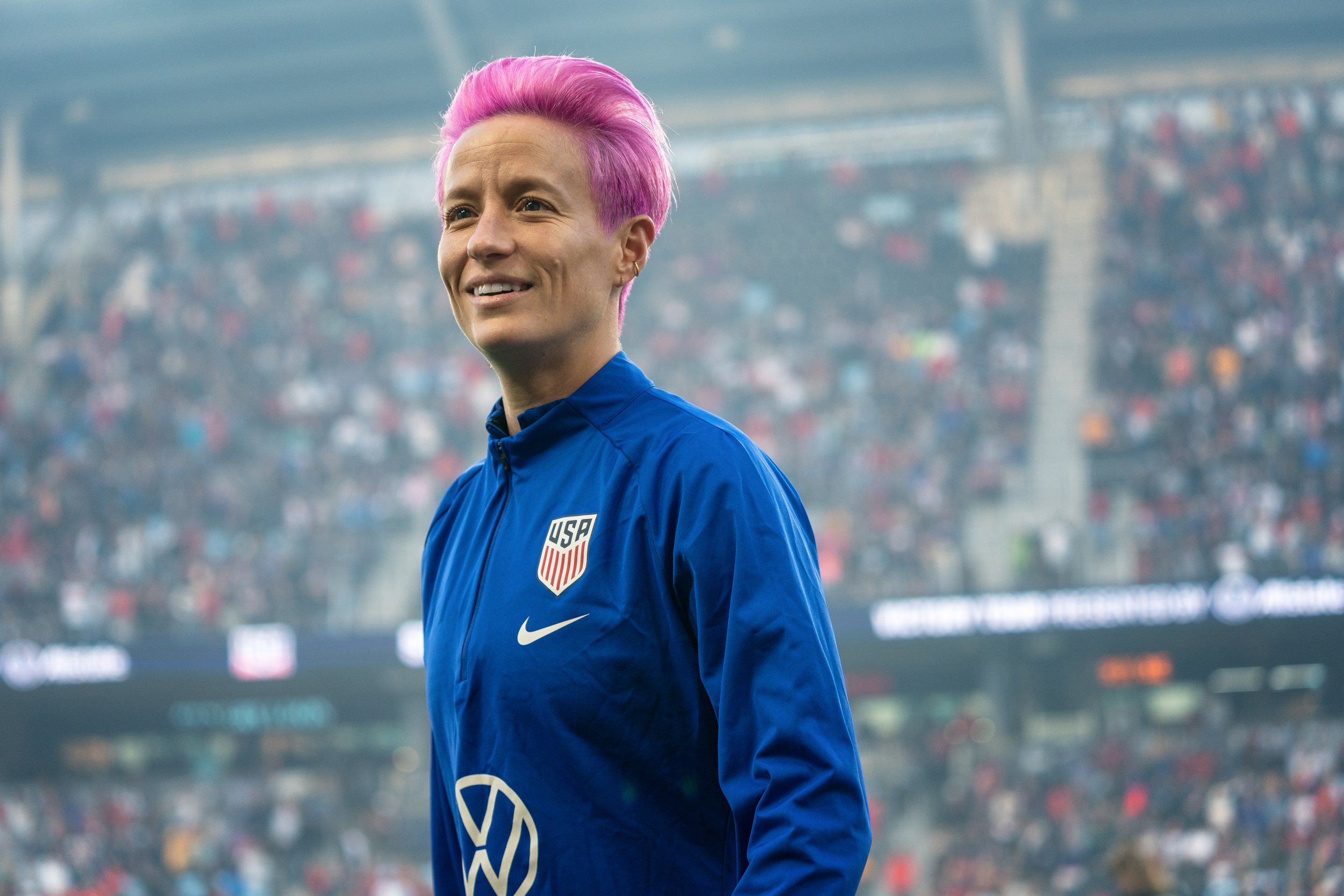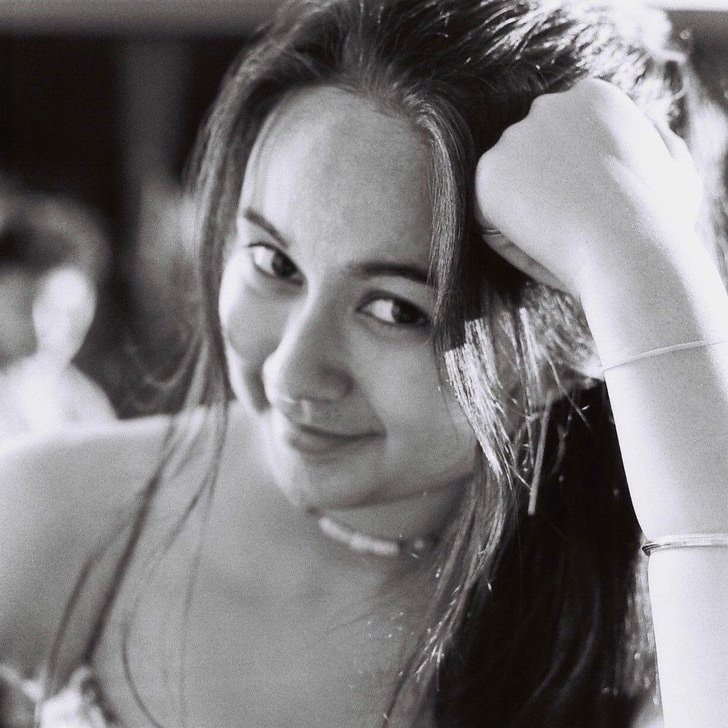From record-breaking seasons and legendary careers to equal pay activism and supporting girls in sport, these six women are proof that you really can do it all.
Players from the Norwegian and Dutch women’s football teams battle it out on the pitch. Ailura. CC BY-SA 2.0
By far the world’s most popular sport, soccer is enjoyed by over a billion players and spectators. International events such as the Europa League Championship and of course the quadrennial FIFA World Cup draw incredible crowds both in person and digitally, uniting the world in patriotic pride and love for a beautiful game. This year, soccer fans have once again been drawn together by the 9th edition of the FIFA Women’s World Cup, considered to be the biggest women’s sporting event in the world, with more than 30 nations competing during July and August in stadiums across Australia and New Zealand. The importance of this event for advancing and promoting professional female athletes and tournaments, both in soccer and otherwise, can not be understated, especially with equal pay and female representation being such hot button issues in today’s social discourse. As such, in addition to achieving the celebrity of household name status, many of the athletes playing in this year’s tournament are also avid activists when not on the pitch. Here are six Renaissance women to keep an eye out for during the game.
1. Marta, Brazil
Soccer legend Marta taking a penalty against South Korea at the World Cup in 2015. Phillippe Bouchard. CC BY-NC 2.0
This mononymous veteran of the game is playing in her sixth Women’s World Cup this year at 37 years of age. Marta is widely considered to be among the greatest female footballers of all time, as a two-time Olympic medallist, six-time recipient of the FIFA World Player of the Year award and record holder for the most goals in any men’s or women’s World Cup with 17 to her name. In addition to her role as a star player in Brazilian national women’s team, Marta plies her trade for the Orlando Pirates in the National Women’s Soccer League (NWSL). When not scoring goals, she is a strong proponent for increasing female participation in sport and champions equal opportunities for girls to get active from a young age. In July 2018, she was appointed UN Women Goodwill Ambassador for women and girls in sport and has continued to further gender equality and female empowerment, encouraging girls to pursue their dreams and overcome barriers in sport. She was also appointed Sustainable Development Goals Advocate to the UN in May of 2019 and has since worked to raise awareness and call for greater global commitment to achieving the project’s targets by 2030. All of this goes to show that Marta’s footballer status as the GOAT applies to her activism as well.
2. Sam Kerr, Australia
Sam Kerr is considered Australia’s greatest hope at a World Cup title this year. Adam Davy. CC BY-NC-ND 2.0
You might know her for her iconic backflip goal celebration, but Australia’s Sam Kerr has accrued an impressive number of accolades since debuting internationally at the age of 15. She was named Australian Sports Personality of the Year in 2017, and won the NWSL’s Golden Boot award both that year and the following one. Kerr was also nominated for FIFA’s Best Player Award in 2018, and has been nominated for the Ballon d’Or Féminin four times. In short, fans have big expectations for the Australian captain, especially since the World Cup is on her home turf. As determined as she is to cinch the gold, she has also been equally dogged with her support of LGBTQ+ rights, and has been a role model to countless young women and girls as an openly gay athlete, spearheading The Matildas’ partnership with Sydney WorldPride just earlier this year. She spoke publicly for the first time about her new relationship with fellow Sky Blue FC player Nikki Stanton in a pre-World Cup sponsorship video for Nike, and pushed back against the incredible number of hateful comments she received in the aftermath. Kerr continues to speak publicly about her sexuality and the importance of being proud and passionate about who she is in an effort to inspire a sense of community among LGBTQ+ athletes.
3. Asisat Oshoala, Nigeria
Asisat Oshoala playing at the Champions League tournament in 2019 for FC Barcelona. Steffen Prößdorf. CC BY-SA 2.0
Asisat Oshoala is definitively the most successful African female footballer in history, and she is only 28 years old. Aside from being the first African woman to both score in and win the UEFA Women’s Champions League, she is also a two-time nominee for the Ballon d’Or and five-time winner of the African Women’s Footballer of the Year award. After playing at a club level in England, China and Spain, Oshoala joined FC Barcelona in 2019 and has quickly risen the ranks to become a key player on the team. As such, the star forward is acutely aware of how her story has inspired many girls that share her ethnic and religious background. In 2015, Oshoala created her namesake foundation in partnership with Women Win of Germany and Nike that runs a number of sport, humanitarian and educational initiatives for girls across Africa. The most prominent is the Asisat Oshoala Academy, which provides tri-weekly football training sessions for young girls in marginalized communities across Africa. As an ambassador for Nike, Oshoala also founded the Football4girls tournament in Lagos, Nigeria, an annual occurrence which brings together teams from schools across the country to compete for a significant cash prize. Oshoala’s talent and passion for her sport is undeniable, rivaled only by her dedication to social work.
4. Ada Hegerberg, Norway
Ada Hegerberg celebrates on the pitch with her Lyon club team. Steffen Prößdorf. CC BY-SA 2.0
When on the pitch, Norwegian soccer legend Ada Hegerberg plays for both Olympique Lyon in France’s Division 1 Féminine league and Norway’s national team. At just 28 years old, Hegerberg is the all-time highest scorer in the UEFA Women’s Champions League with 59 goals to her name and is also the current record holder for the most goals scored in a UEFA Women’s Champions League season. In 2018, she was the inaugural recipient of the Ballon d’Or Féminin and has been named as BBC Women’s Footballer of the Year twice. Off the pitch, however, Hegerberg is most well known for taking a five year hiatus from the Norwegian national team in protest of the lack of equal pay between the men’s and women’s teams, and the Norwegian Football Federation’s (NFF) poor treatment of female players. Her absence was a huge blow to Norway’s chances of victory, and is recognized as being a significant factor in the NFF’s 2022 decision to give the women’s team equal pay. Hegerberg has also been a vocal supporter of LGBTQ+ rights and raised a rainbow band during a match against New Zealand in June 2022 in solidarity with victims of a shooting at a gay nightclub in the Norwegian capital of Oslo earlier that year. With the rest of the Grasshoppers by her side, Hegerberg will be spearheading Norway’s attack at the World Cup this year.
5. Khadija “Bunny” Shaw, Jamaica
Khadija Shaw is captaining the Reggae Girlz at this year’s World Cup. Jorge Martinez, Mexsport. CC BY-NC 2.0
Khadija Shaw went to her first World Cup at only 21 years of age as part of the first Caribbean team to qualify for a Women’s World Cup, and has returned this year as captain of Jamaica’s national team at the same competition. Khadija, or Bunny as she is affectionately known by her fans, made a smashing debut in Bordeaux back in 2019 tallying a whopping 32 goals in 35 games. She has since continued to build her lead as Jamaica’s all-time leading goal scorer among both the men’s and women’s teams after moving to Manchester City in 2021 where she has also broken the record for most goals scored in a single season. Soon after that fateful World Cup qualification in 2019, however, Shaw took to social media to express her discontentment with the Jamaican Football Federation over not being paid to compete, joining the movement for equal pay rights. She is also a big proponent of encouraging girls to participate in sports, and has been very vocal about the lack of opportunities and role models for young girls in Jamaica and the Caribbean, having faced plenty of challenges in trying to pursue her passion while at home. Shaw and Jamaica’s Reggae Girlz, as the team is fondly known, will be appearing for their second World Cup this year in the hopes of inspiring even more funding and investment in grassroots soccer initiatives in Jamaica.
6. Megan Rapinoe, USA
Megan Rapinoe on the victory tour with the US Women’s National Team in 2019. Lorie Shaull. CC BY-SA 2.0
No list of women soccer players is complete without the iconic colorful-haired Megan Rapinoe. At 38 years of age, Rapinoe is a two-time World Cup champion, an Olympic gold medallist and has also won both the Best FIFA Women’s Player award and the coveted Ballon d’Or Féminin in 2019. She first made headlines in activism when she joined fellow athlete Colin Kaepernick in kneeling during the American National Anthem, which she followed up soon after in her role as an extremely outspoken proponent of the successful fight for equal pay in American soccer led by the US Women’s National Team. Rapinoe has also been a notable critic of the overturning of Roe v. Wade last year, and has publicly called on the Supreme Court to support abortion rights. As one of, if not the most, popular American women’s soccer players of our time, many will be showing their support for Rapinoe after her announcing that this World Cup will be her last, as she plans to retire at the end of the NWSL season. Given her extensive involvement in a variety of activist movements, however, there is no doubt that she will continue to remain involved in the sport even after she leaves the pitch.
Tanaya Vohra
Tanaya is an undergraduate student pursuing a major in Public Health at the University of Chicago. She's lived in Asia, Europe and North America and wants to share her love of travel and exploring new cultures through her writing.








